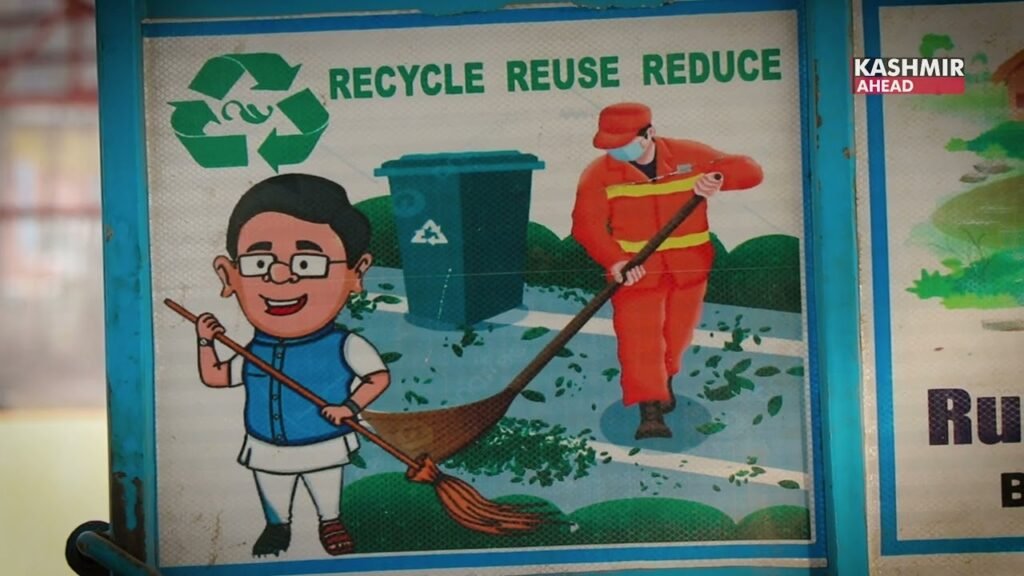The plastic waste management unit in Kakapora, established two months ago, has become a vital step toward addressing waste management challenges in the region. This unit focuses on crushing plastic waste collected locally, which is then sent to factories for recycling. Alongside this, kitchen waste is also managed efficiently by converting it into compost manure through composite pits. This organic manure is a valuable resource for agriculture, promoting sustainable practices. The foundation for this initiative was laid through the establishment of a solid waste management treatment plant under the Swachh Bharat Mission, supported by the Government of India and the Jammu and Kashmir Union Territory Government. The plant, developed which is renowned for its expertise in waste management, serves as a model facility. This is the first of its kind in Kakapora and has already started transforming the region’s waste management practices. Previously, waste disposal in Kakapora posed significant challenges. Garbage often ended up in drains, streets, or fields, leading to environmental and health issues. However, with the introduction of door-to-door waste collection under the SBM scheme, significant progress has been made. Residents now use three dustbins to segregate waste into general garbage, plastic, and organic waste. This segregation system has streamlined the waste management process, enabling plastic to be crushed and recycled while organic waste is converted into compost. The initiative has been embraced enthusiastically by the local community. People now understand the importance of cleanliness and actively participate in waste segregation. The slogan “Service is the biggest service” reflects the collective commitment to maintaining a clean environment, fostering a sense of shared responsibility. This achievement has been possible due to the collaborative efforts of the Government of India, the Jammu and Kashmir administration, and the local community. Prime Minister Shri Narendra Modi’s vision and support for the Swachh Bharat Mission have been instrumental in making this project a reality. While the progress so far is commendable, efforts must continue to ensure the unit’s sustainability and long-term success. Strengthening infrastructure, maintaining functionality, and expanding awareness about waste management will be critical moving forward. Cleanliness not only enhances the environment but also promotes better health, happiness, and overall well-being, making this initiative a remarkable example of how community-driven efforts can lead to meaningful change.
Keep Reading
Add A Comment



